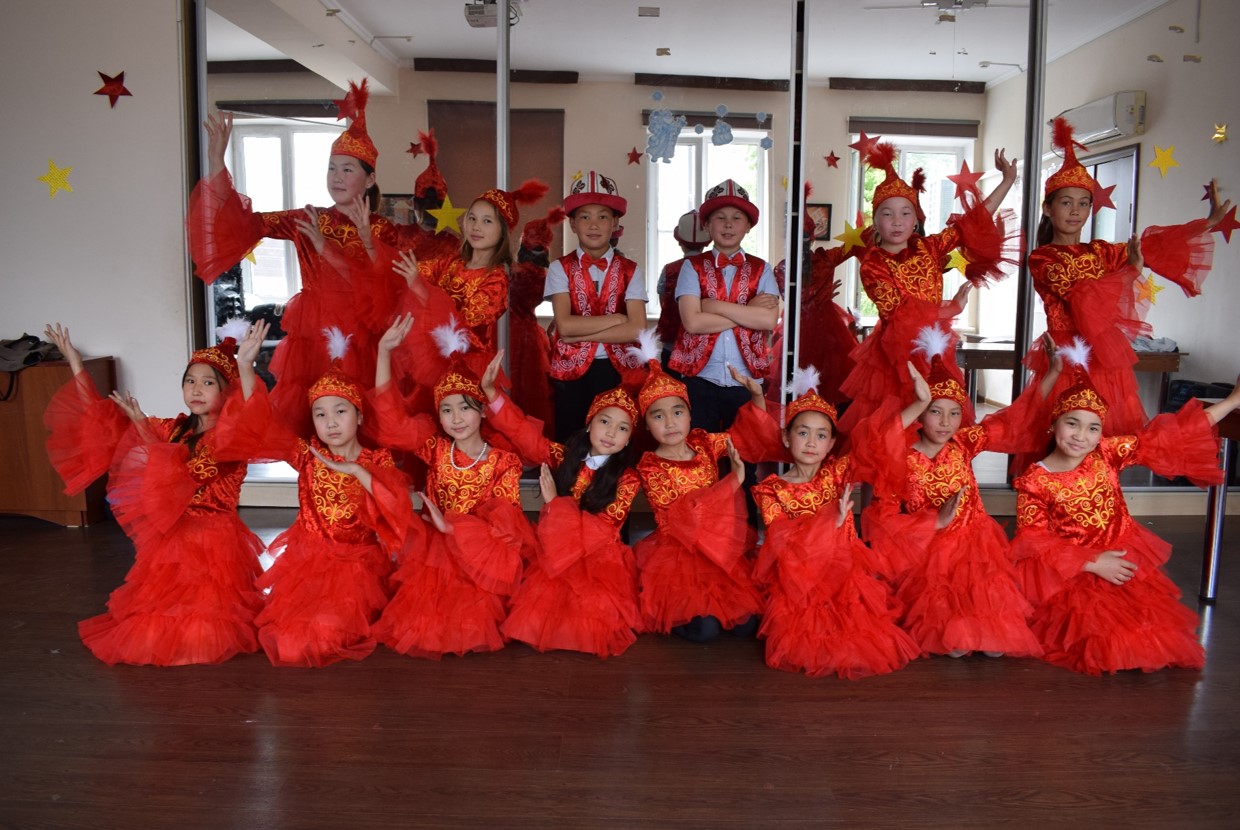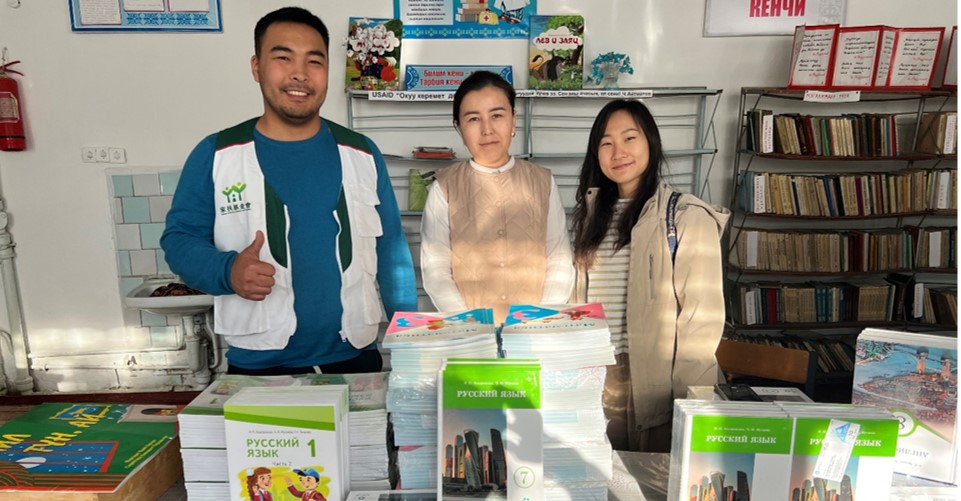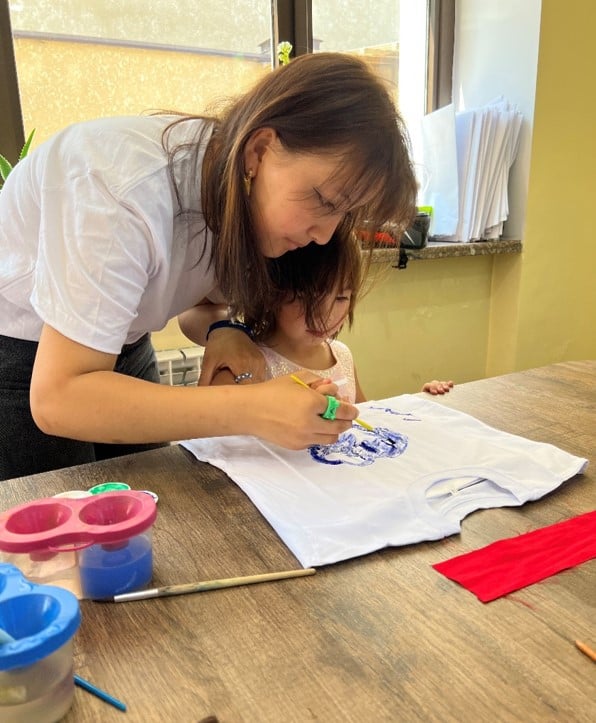Creating a Positive Learning Environment to Help Children Achieve Educational Goals

Kyrgyzstan, located in Central Asia, boasts a rich cultural and historical background. During the Cold War, being behind the Iron Curtain influenced its overall development path under Soviet control. After the dissolution of the Soviet Union, various existing development issues gradually surfaced. Education became one of the most scrutinized aspects, with the Kyrgyz education system inheriting characteristics from the Soviet era. In recent years, it has faced numerous challenges and difficulties, including a shortage of qualified teachers, insufficient educational resources, and varying teaching quality. The inadequate salary for Kyrgyz teachers has led to a shortage of those willing to enter the profession, contributing to a situation of having more students than qualified teachers. This has forced the education system to relax teacher qualifications, allowing individuals without proper credentials or adequate teacher training to enter the field, resulting in inconsistent teaching quality. Moreover, due to budget allocations and economic challenges, many school facilities and equipment remain outdated, and educational environments lack modernization, with a scarcity of teaching resources such as tools and textbooks.
Authorities have recognized the existence of these problems and understand the crucial link between education, talent cultivation, and national development. Consequently, they are actively trying to improve the education system. However, progress at the current stage remains limited. To provide a comprehensive overview of the education issues from a local perspective, we conducted interviews with both parents and students.

【Perspective of Parents】
Parent A:
"I am facing a dilemma in choosing a school for my child. Public schools in the area are closer to home, but I am concerned about the lower quality of education. On the other hand, private schools may offer more stable quality, but the tuition is extremely high. I am looking for a more affordable option that can provide quality education for my child, both academically and economically. We need more excellent teachers and a modernized learning environment."
Parent B:
"I am worried about my child's future. The education system here has not changed since the dissolution of the Soviet Union, and it should be overthrown, just like outdated theories. While the world's technology is advancing, our education system remains in the old era... So, to be honest, I don't have high expectations for this education system. The curriculum lacks practicality, is outdated, and cannot meet the needs of modern society. I hope schools can offer more practical and up-to-date learning content."
Parent C:
"There seems to be little communication between parents and school teachers. Teachers seem to contact us only when they need money or when discussing the child's negative behavior. I believe communication between schools and parents is crucial. Schools should provide information about daily schedules, campus activities, nutrition, and health. Parents should be able to discuss issues freely and receive feedback on their child's progress. Schools should involve parents in activities and use modern communication software to share information. I hope for good communication opportunities between schools and parents to help children grow and create a better learning environment."
【Perspective of Students】
Student A:
"The school I attend lacks enough textbooks and learning resources, and buying them myself would burden my family. Due to a lack of reading opportunities, I cannot explore knowledge and expand my imagination freely like other children. Many of my classmates cannot come to school because their families cannot afford the uniform fees."
Student B:
"There is a significant gap in the quality of teachers at the school! Some teachers are emotionally unstable and frequently scold students. I hope teachers can stay calm and respect students. If I give an incorrect answer, I don't want to be scolded. I want a safe, friendly, and challenging learning environment where I can explore my talents and cultivate creativity."
Student C:
"The school is divided into morning and afternoon sessions. Since my parents have to work, when I return home after school, I can only help with housework. After completing the housework, my parents also expect me to take care of my younger siblings, leaving me with little time for recreation."
Addressing Challenges: TFCF's Educational Support Initiatives
- School Supplies Assistance:
Providing uniforms, stationery, books, and various school supplies to reduce barriers to enrollment for assisted children.
- Reading for All:
Establishing libraries at the center and initiating mobile libraries in rural schools to offer more books and promote reading activities, sparking interest in reading among students.
- Social Resource Network:
Assisting in improving the teaching environment by supplying resources such as textbooks, teaching aids, and electronic equipment, addressing the practical needs of schools.
- Talent Squads, Tutoring Classes, Accelerated Classes:
Conducting various courses, including dance, English, and information technology, to provide assisted students with diverse learning opportunities. Tutoring classes focus on after-school companionship and academic guidance, improving academic performance. Accelerated classes target students preparing for entrance exams to obtain qualifications for higher education.
- Youth Empowerment, Youth Volunteers:
Organizing practical learning activities such as volunteer service, student exchanges, and various visits to help students apply what they have learned, fostering practical skills and problem-solving abilities.

.jpg)
Through this series of educational support, we aim to gradually improve the educational environment and teaching quality, providing local children with learning opportunities and a more modernized learning environment. We hope to help Kyrgyz students receive a quality education and, over time, contribute to the development of the country.
